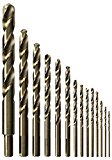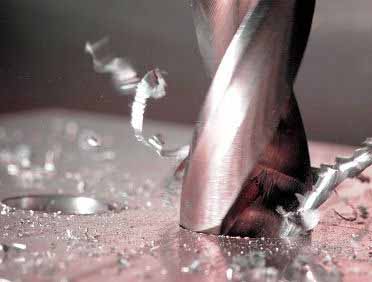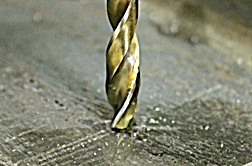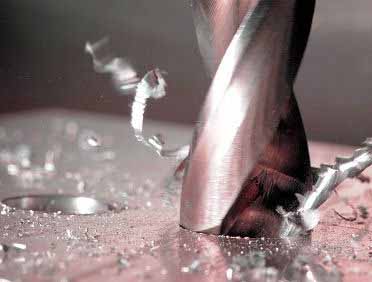Our HSS vs cobalt drill bit comparison we’ll begin with the assertion that the “cobalt bits” are one of the types of HSS – High Speed Steel bits.
HSS tools show nice toughness and capable of withstanding against the intermittent or cyclic loading. The performance of HSS tools can be further improved by application of the coating.
The cobalt-base superalloys have their origins in the Stellite® alloys patented in the early 1900’s by Elwood Haynes.
Cobalt alloys are widely used because of such reasons:
- Cobalt alloys have high hot corrosion resistance.
- Cobalt alloy has higher melting point than other HSS alloys. So cobalt drill bits better absorb stresses to higher absolute temperatures.
- Cobalt alloys have good thermal weldability and fatigue resistance.
Cobalt vs HSS Drill Bit Comparison Table
| HSS vs Cobalt – General Information | |
| HSS is a tool high carbon steel, containing a significant dose of tungsten. A typical HSS alloy has: about 15% tungsten, 5% Chromium, 1% Vanadium, 0.7% carbon.
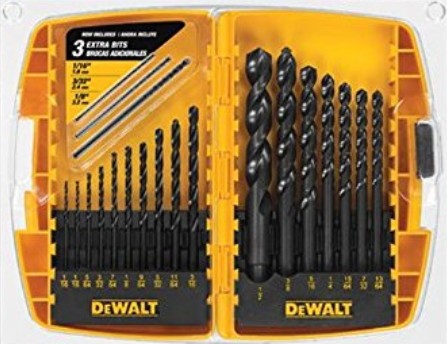 |
For better wear resistance and higher strength manufacturers add to alloys 5-8% cobalt. Drills made with the cobalt addition usually are called “cobalt drills”. 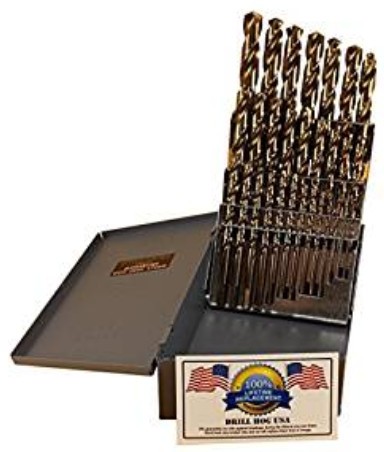 |
| Cobalt vs HSS drill bits – application | |
| HSS drill bits are good for drilling in materials such as plastic, wood, and mild steel. Drilling with dull bits slows the process and causes overheating. You need to sharpen bits with a bench grinder, or better a drill doctor. Using cutting fluid keeps the bit cool and prolongs a lot the life of the bit. | Cobalt drills are good for drilling tough materials: hardened and stainless steel.
You can drill with them plastic and wood too, but cobalt bits are more brittle than regular HSS ones, so you can easily break it. |
| HSS vs Cobalt – Reliability | |
| High-quality HSS bits work nice and precise and reliable. If you keep them sharp it’s a reasonable investment.A good HSS bits are fine if they are from a quality source. As long as you keep them sharp it’s a reasonable investment.You can generally use HSS bits and when a stainless job comes up, you get cobalt for those jobs.Cobalt will do everything HSS will do and more. But they are brittle, and if you’re not real careful they tend to break. |
For home and DIY use, cobalt bits have better “hot” hardness. and this is an important characteristic. Most non-industrial users using hand driven drills blunt the HSS bit’s cutting edge because of uncontrolled feeding and imperfect alignment. Cobalt drill bits are more resistant to overheating, work well without cooling and stay sharp much longer.
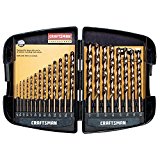 Check Cobalt bits Price and Availability Cobalt drills can cost from 1.75 to 2.5 times more than normal HSS drills. A right compromise between increased tool life and increased productivity has to be arrived at to effectively balance the increased cost of the tools. |
| HSS vs Cobalt – Prices | |
HSS vs Cobalt Drill bits – Conclusions
Just for me, the best choice is a low-cost bit with using a cutting oil at low speeds. It prevents overheating and dulling. The HSS bits in some applications can be better. When cutting plastics they tend to have a sharper, finer edge. Carbide is largely overkill for home use. I’d want a mix of both, but better to have more HSS than carbide just based on price.
Unless you’re drilling in stainless, or doing boring more than three times deeper than the diameter, you will not know the difference between quality HSS or quality Cobalt. HSS requires being heated to a dull red before it loses its temper. Cobalt holds its temper to even higher temperatures.
